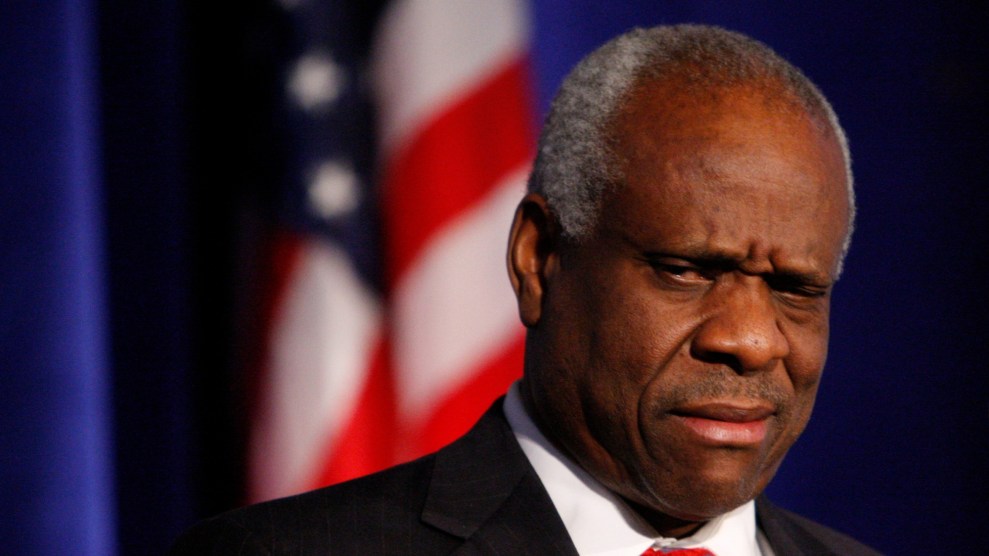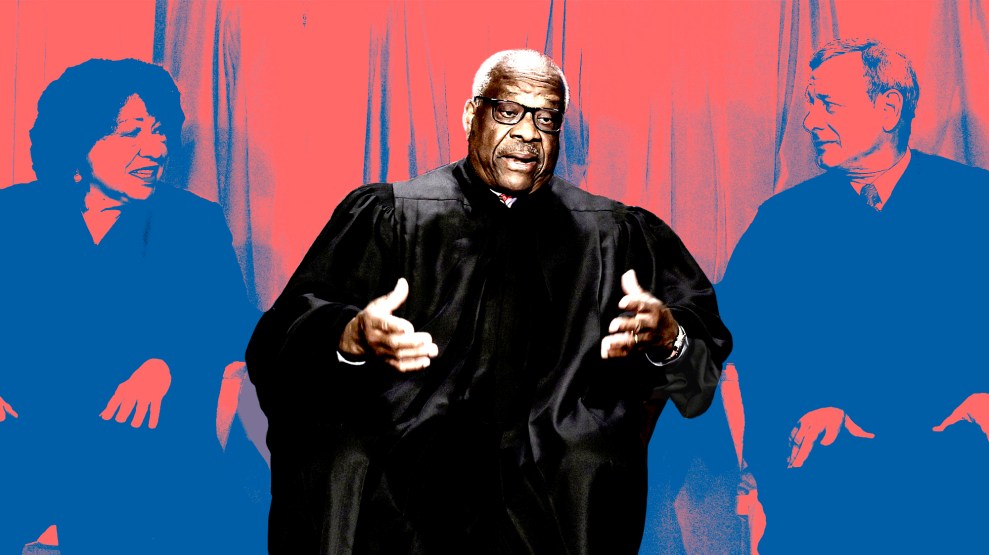
Charles Dharapak/AP
The Supreme Court on Monday announced that it will adopt a first-ever code of ethics, bowing to intense public pressure to do so amid multiple reports of disclosure failures and justices receiving improper gifts. But the move, which appeared to characterize the scandals at the high court as “misunderstandings,” does not include an independent means of enforcement.
“The absence of a Code, however, has led in recent years to the misunderstanding that the Justices of this Court, unlike all other jurists in this country, regard themselves as unrestricted by any ethics rules,” the justices wrote. “To dispel this misunderstanding, we are issuing this Code, which largely represents a codification of principles that we have long regarded as governing our conduct.”
Over the years, several justices, including Samuel Alito and Sonia Sotomayor, have come under fire for allegedly leveraging their positions for personal gain. But none of the allegations have been as staggering as the allegations surrounding Clarence Thomas, whose benefactors include billionaire GOP megadonor and Nazi memorabilia collector, Harlan Crow. ProPublica dropped multiple eye-opening investigations into Thomas’ lavish lifestyle with his rich benefactors. Here’s a glimpse of one report:
While some of the hospitality, such as stays in personal homes, may not have required disclosure, Thomas appears to have violated the law by failing to disclose flights, yacht cruises and expensive sports tickets, according to ethics experts.
Perhaps even more significant, the pattern exposes consistent violations of judicial norms, experts, including seven current and former federal judges appointed by both parties, told ProPublica. “In my career I don’t remember ever seeing this degree of largesse given to anybody,” said Jeremy Fogel, a former federal judge who served for years on the judicial committee that reviews judges’ financial disclosures. “I think it’s unprecedented.”
You can check out the full code of ethics below.














